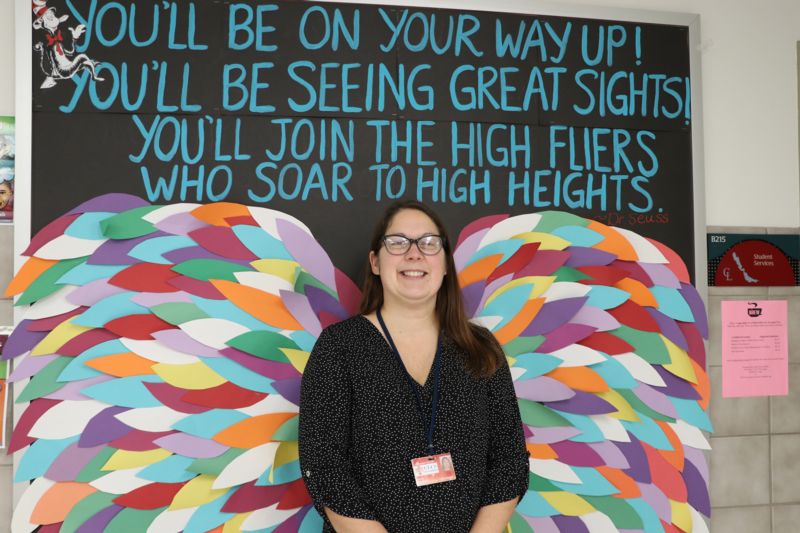Content Row
Student Services
»
School Psychologist
Katrina Cummings, School Psychologist
(716) 753-5849
"School psychologists provide direct support and interventions to students, consult with teachers, families, and other school-employed mental health professionals (i.e., school counselors, school social workers) to improve support strategies, work with school administrators to improve school-wide practices and policies, and collaborate with community providers to coordinate needed services."
- Information from the National Association of School Psychologists
To contact the School Psychologist, please call, deliver or mail questions to:
School Psychologist
Chautauqua Lake Central School
100 N. Erie St.
Mayville, NY 14757
According to district practice, to be considered by the school psychologist, questions or comments must include the writer's full name, email or mailing address and telephone number.
Helping Students and Families Connect the Dots to Thrive in School and Beyond
All children have the potential for greatness and success. As parents and educators, we can help them realize their vast potential -- achieving their goals, thriving in the face of adversity, solving problems and continually growing as an individual – by helping them to “connect the dots” along the many pathways to success.
We can help students build upon their strengths, skills, interests and abilities to connect the dots and thrive. This includes helping them identify and plan ways to accomplish short- and long-term goals, creating a safe and supportive environment, building positive relationships and encouraging them to take on challenges and persevere when things get tough. Working together, we can help them connect the dots to promote their competence, achievement and resiliency.
School psychologists are members of the school staff who support students’ ability to learn and teachers’ ability to teach. We apply expertise in mental health, learning and behavior to help children and youth succeed academically, socially, behaviorally, and emotionally. We provide direct support and interventions to students, such as individualized learning and behavioral assessments to identify students’ strengths and needs, academic and behavioral interventions, counseling and social skills training. We also consult with teachers, families, and other educators to improve support strategies and school-wide practices and policies. We are in a unique position to ensure a positive school climate wherein children connect the dots and thrive.
There are many ways families can help children connect the dots and thrive. You can:
- Encourage your child to set goals and to map out a plan for achieving them.
- Help your child internalize a sense that he or she can achieve by reinforcing the skills already developed and encouraging him/her to try new challenges.
- Help your child identify his/her strengths and interests and learn new skills.
- Emphasize that learning and growing requires trying new things and that success comes from small steps to a long-term goal.
- Help him/her work through setbacks or lack of self-confidence by helping to identify negative thoughts that may suggest concerns about his/her ability to be successful. As a parent, you can help children see what the small steps are and how persisting and overcoming obstacles is a part of succeeding. Help him/her realize that setbacks are not permanent or all encompassing.
- Praise attempts as well as success and make sure that you focus on the effort put into the success.
- Create an environment at home that allows your child to explore building (blocks, helping with projects, etc.), drawing (crayons, finger paints, paper) and music (on the radio, with children’s instruments, or through formal training).
- Demonstrate, through your own behaviors, how to identify and achieve long-term goals by thinking aloud, creating a pathway of short-term goals and using problem solving and decision-making skills along the way.
- Model perseverance and problem solving when faced with challenges or difficulties.
- Help your child develop positive relationships with peers and adults and model respectful, caring behaviors with others.
- Encourage your child to participate in community activities that may help him/her develop positive behaviors, such as being thankful and having gratitude. In particular, volunteer activities may encourage the development of positive behaviors.
- Participate in community events or encourage your child to participate in extra-curricular activities in the community to increase his/her connectedness with community members, including other children and adults alike. This will increase your child’s well-being, achievement and create a sense of community, safety and security amongst adults and children.
- Seek out support systems available in the community to help your child learn new skills and thrive, such as tutoring or mentoring programs.
- Consider learning more about Positive Psychology, and what enables children or individuals to thrive (www.positivepsychology.org/books).
Together we can encourage all children, whether at home or at school, to focus on their interests, strengths and skills, identify pathways to “connect the dots” to reach goals, challenge themselves with new things and persevere through difficult problems to reach their potential in school and in life.

.png)
